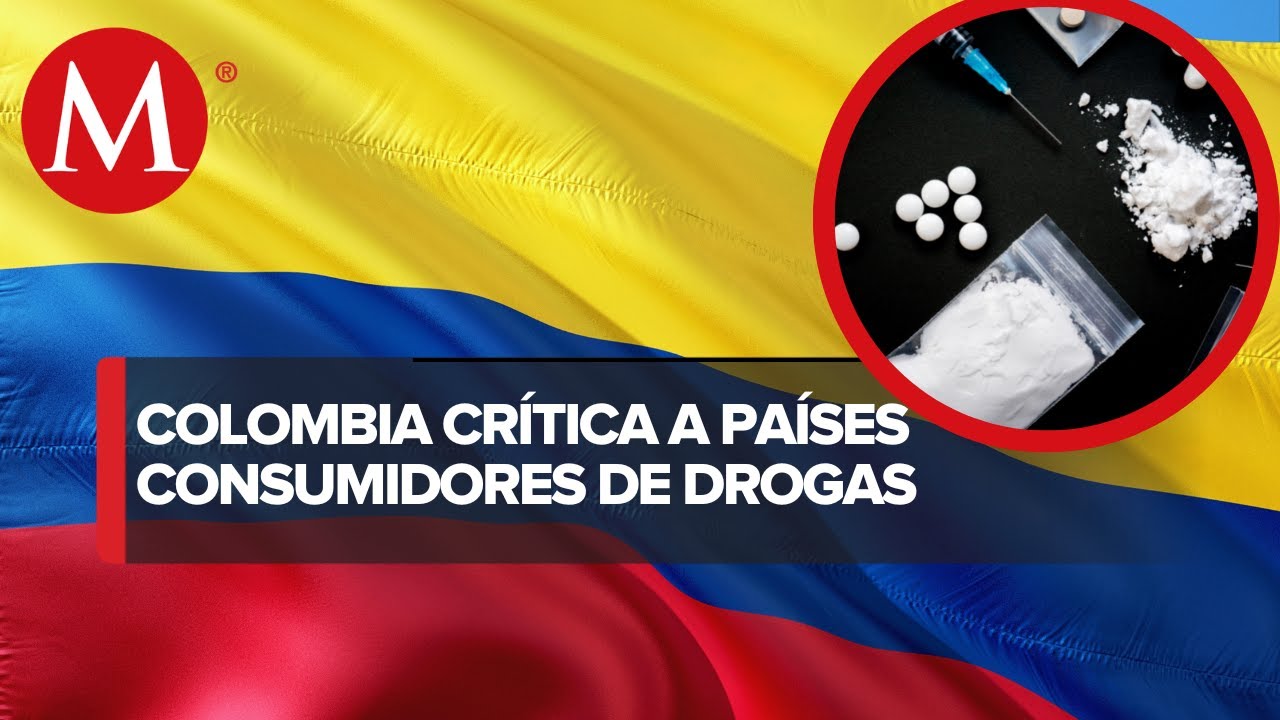Colombia Critica A Países Consumidores De Drogas: “Exigen Sin Poner De Su Parte”
Unleash Your Creative Genius with MuseMind: Your AI-Powered Content Creation Copilot. Try now! 🚀
In the ongoing battle against drug trafficking, a new player has entered the fray. Colombia, the main supplier of drugs to Mexican cartels, has joined the dispute between Mexico and the United States. During the first session of the 66th edition of the United Nations Commission on Narcotic Drugs, the Colombian government reproached countries like the United States for leaving the task of combating drug trafficking to the countries that produce them.
Laura Gil, the Deputy Minister of Multilateral Affairs at the Ministry of Foreign Affairs of Colombia, lamented that consumer countries like the United States do not do enough to decrease the international flow of narcotics. She emphasized that countries with the highest demand for drugs must take responsibility and not solely rely on the efforts of the producing nations. Gil stated that these countries have not done enough in terms of prevention and reducing the use of illicit substances. In fact, she highlighted that cocaine production is currently at its peak, with the global drugs report of 2022 indicating that approximately 284 million people worldwide consume some form of illicit substance.
To illustrate the seriousness of the issue, on Sunday, March 12th, the Colombian Navy intercepted a semi-submersible maritime vehicle, similar to a submarine, carrying over 2,600 kilos of cocaine. This operation, conducted with international support, prevented more than 87 million dollars from entering the coffers of drug trafficking organizations and halted the circulation of more than six million doses of cocaine worldwide.
Shifting the Paradigm in Drug Policy
The first session of the commission also reached a consensus on the need to shift the current drug policy paradigm. They stressed the importance of taking a gender perspective in combating drug trafficking, emphasizing non-criminalization and the application of non-punitive treatments for minor drug-related offenses. Additionally, the utilization of scientific advancements to combat addiction and prevent diseases and overdoses was highlighted.
For decades, many countries have resorted to punitive measures, including extrajudicial killings, in their fight against drug trafficking. However, these strategies have been complete failures, only increasing the quantity and quality of substances produced and consumed. Without international cooperation and the exchange of intelligence information, it becomes a greater challenge to disrupt cartel operations. Notably, these organizations have branched out into other illegal activities, such as migrant and arms trafficking, money laundering, and even financing terrorism through the use of new technologies like cryptocurrencies and the dark web.
Collaborating for a Drug-Free Future
The global drug trade remains a complex issue that requires collaboration and innovative strategies from all nations involved. It is crucial for countries with high drug demand to acknowledge their responsibility and actively participate in reducing the international flow of narcotics. This requires not only a crackdown on traffickers and producers but also a focus on prevention, education, treatment, and support for individuals struggling with addiction.
Furthermore, it is imperative to adopt a comprehensive approach to drug policy that addresses social, economic, and health aspects. By implementing evidence-based strategies and learning from successful international examples, countries can work together to create a world free from the devastation caused by drugs.
In conclusion, the inclusion of Colombia in the dispute between Mexico and the United States sheds light on the larger issue at hand - the global drug trade. It highlights the need for cooperation, understanding, and innovation in tackling this complex problem. By shifting the focus from criminalization to prevention and treatment, countries can work towards a drug-free future where individuals and communities are not bound by the chains of addiction. It is essential for all nations to come together, share intelligence, use science to inform policy, and prioritize the well-being of their citizens in the fight against drug trafficking.

Related Recaps
- Miranda Cohen Hot Workout || Most Beautiful Fitness Model || #mirandacohen #femalefitness
- 1965-1966 Television Season 50th Anniversary Tribute: Gidget and Sally Field
- Our Perfect Day in PORTO, Portugal!
- Marvel's Spider-Man 2 - Launch Trailer I PS5 Games
- i bet you know all these songs 🌈 A throwback playlist reminds you the best time of your life